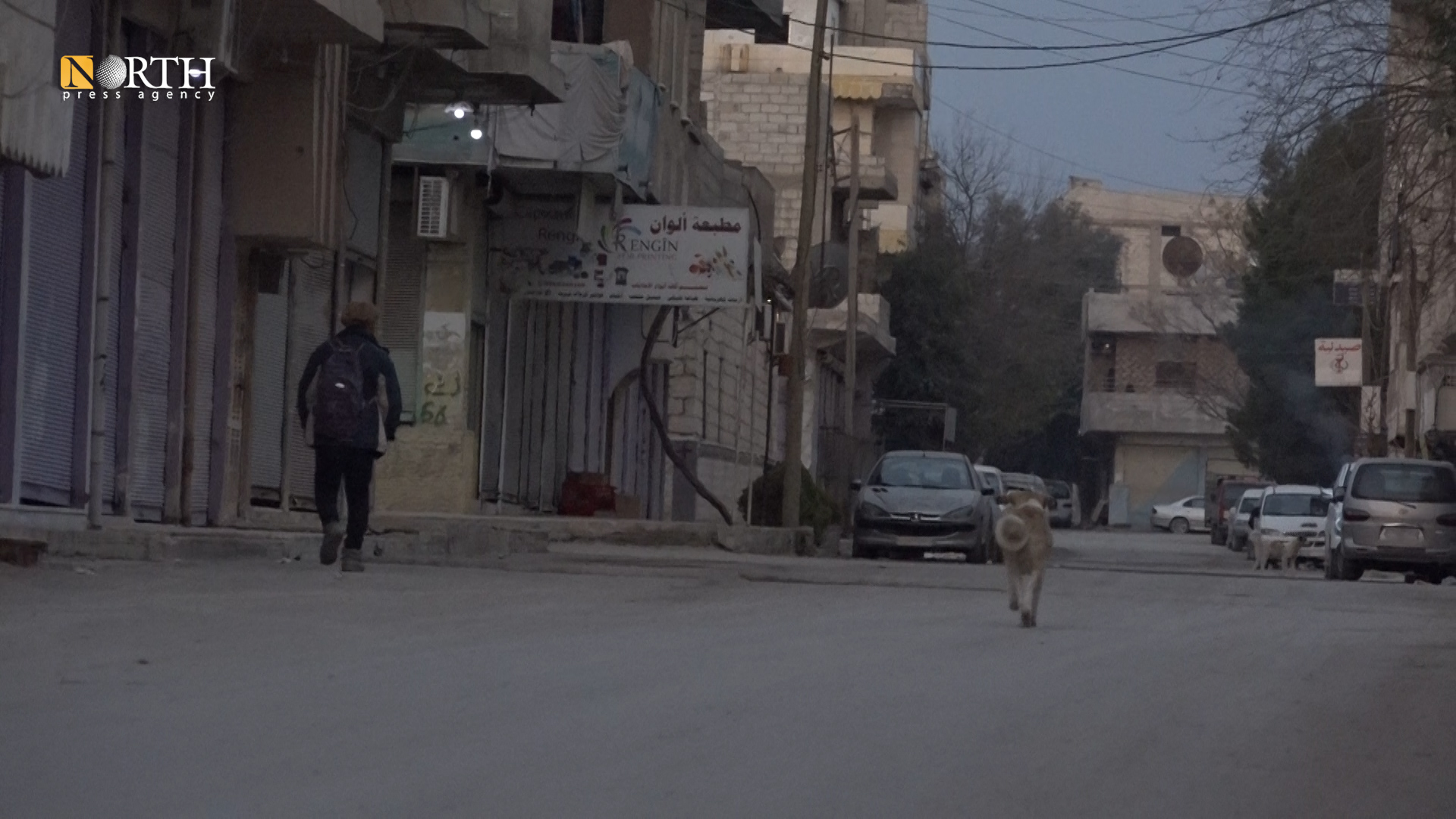KOBANI, Syria (North Press) – Residents of the northern Syrian city of Kobani are criticizing the failure of the local administration to find a solution to the problem of stray dogs, whose bites inflict injury and even death, becoming a danger to everyone from workers to children on their way to school.
Locals recall promises made by the municipality of Kobani over the past year to find a solution to this problem through the establishment of a natural animal and botanical reserve called the “Ecological Village,” but these promises have yet to be implemented on the ground.
During 2020, the manager of Kobani Hospital Bozan Sheikh Bakr confirmed that the number of people bitten by rabid dogs in the city and its countryside reached 352, including 26 cases in December.
Threatened children
Muhammad Jeb, a resident of Kobani, said, “I saw a group of dogs attacking children on their way to school; one of the dogs attacked a 14/15-year-old kid, maybe in 8th/9th grade.”
“Kobani municipality promised to transfer the dogs to a special place; however, no dogs have been removed from the city yet,” he stated.
Jeb accompanies his children to school every day, particularly when streets are empty in the early morning.
In May 2020, 13-year-old Farhan Saadou lost his life after he was bitten by a rabid dog in the square of Kalta village in the southern Kobani countryside.
Kobani Hospital doctor Ali Ahmed Shaheen explained that parents should go to the nearest medical point when children or people are bitten in order to take the necessary measures, especially sterilizing and cleaning the wound, and give them the necessary doses of vaccines.
Shaheen added that the treatment requires four doses for a wild dog’s bite, while it needs only one dose for a pet dog’s bite.
Scattered garbage
Kobani resident Feridon Sheikho said, “in the morning we open our front doors and see the dogs digging in the trash.”
“There are rabid dogs that attack people, and attack those on motorcycles who go out early to secure their needs,” he added.
The Ecological Village was supposed to be ready by the middle of July 2020, according to a former statement by the advisor of the General Administration of Environment in the Euphrates Region Ismail Khalid.
“At the beginning we suggested to establish it in Qashlah village; however, due to the lack of underground water we transferred the site to the village of Sheikh Joban,” co-chair of the General Administration of Environment of the Euphrates Region said.
“However, due to the coronavirus pandemic and the lack of budget, the Autonomous Administration of North and East Syria has not determined the project budget yet,” he added.

